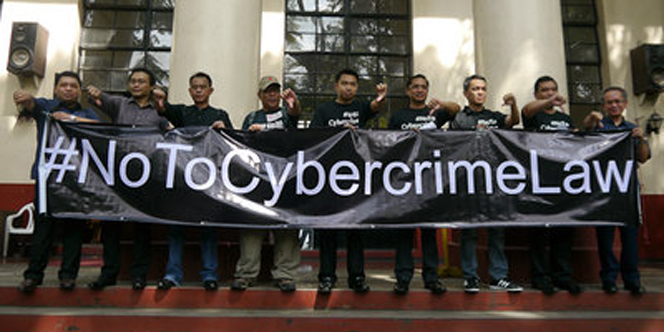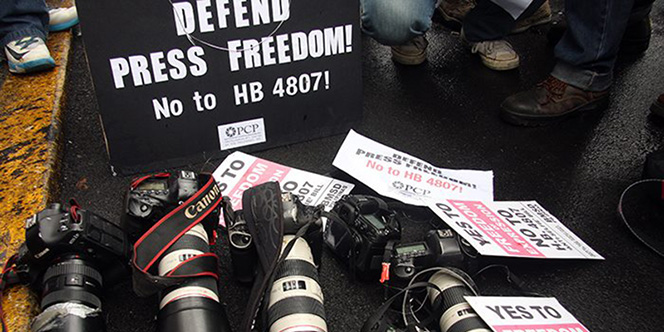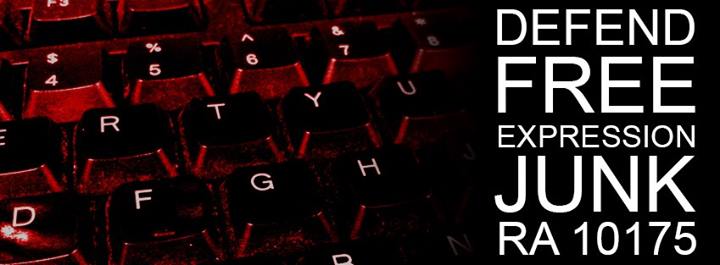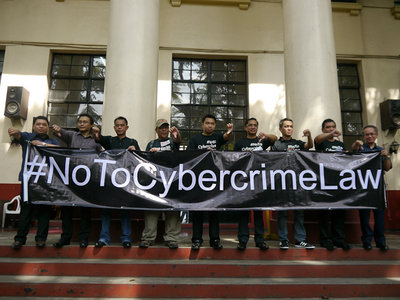Fight vs Cybercrime Law continues — Kabataan
Kabataan Party-list and other progressive groups vowed to continue to challenge Republic Act No. 10175 or the Cybercrime Prevention Act of 2012, even after the Supreme Court declared the constitutionality of majority of the provisions of what critics have been calling as a “draconian law” that impinges on internet freedom. “Though the SC has laid […]


Kabataan Party-list and other progressive groups vowed to continue to challenge Republic Act No. 10175 or the Cybercrime Prevention Act of 2012, even after the Supreme Court declared the constitutionality of majority of the provisions of what critics have been calling as a “draconian law” that impinges on internet freedom.
“Though the SC has laid down certain restrictions in the implementation of the law, we believe that it will still impede our civil liberties in the cyberworld. The upholding of the provision for online libel, for example, poses imminent threats to many content creators,” said Kabataan Rep. Terry Ridon.
Ridon, who also served as legal counsel in one of the 15 petitions against the Cybercrime Law, said libel has been repeatedly abused by powerful people to harass journalists and impinge on press freedom. With the new libel provision covering internet content, there will be little remedies to stop the same powerful individuals from using the law against their critics, Kabataan said.
“It is lamentable that in the Philippines, we now have a set of firm restrictions over cyber activity, yet we do not have a law that lays down the rights of Internet users,” Ridon further said.
Kabataan maintained that the Cybercrime Law, even after the Supreme Court decision striking down some of its provisions, impedes with freedom of expression and ushers in what it calls “e-Martial Law”.
Among the provisions the high court declared unconstitutional are Section 4 (c)(3), on unsolicited commercial communications; Section 12, on real-time collection of traffic data; and Section 19, on restricting or blocking access to computer data.
Meanwhile, the militant workers’ center, Kilusang Mayo Uno (KMU) said that the Supreme Court decision on Cybercrime Law may be indication that the high court is taking its time in issuing rulings favorable to the Aquino administration.
“We are left with the impression that the Supreme Court is merely taking it one step at a time with regard to issuing anti-people and pro-Aquino rulings. It wants criticisms in the Internet to be silenced before going for the kill in making more anti-people and pro-Aquino rulings,” said Elmer Labog, chairperson of KMU.
Aside from ruling on Cybercrime Law, the court also gave a 60-day extension on the temporary restraining order against Manila Electric Company’s (Meralco) P4.15 per kilowatt-hour power rate hike.
Labog called on the public to be vigilant and take to the streets their sentiments against “anti-people” laws and decisions by the Aquino administration.
“The fight against e-Martial Law is far from over. We call on everyone to up the ante and once again show our collective dissent against this repressive law,” Kabataan’s Ridon added.



